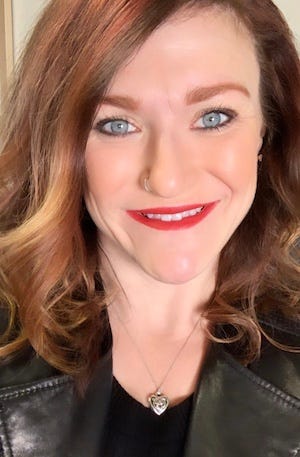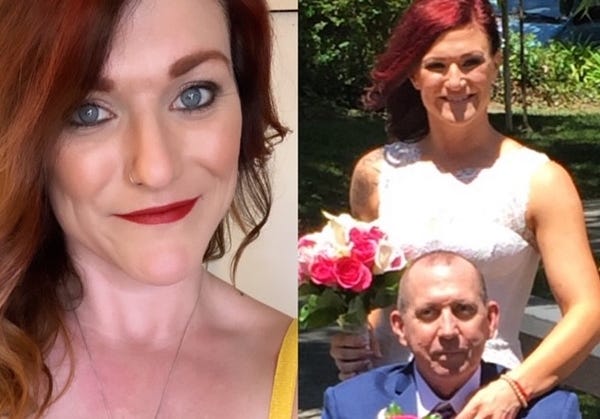Death ignorance can leave us scrambling when the time comes.
When my husband Patrick was diagnosed with glioblastoma brain cancer in 2014, I had never watched someone die. I did not know what it looked like, what it sounded like, or what the progression would be. After his diagnosis, I was so focused on trying to save his life and “staying positive” that I failed to educate myself and prepare for the inevitable. Instead of having important conversations with Patrick about how he felt as his recognizable self slowly but surely disappeared, we focused on treatment protocol. Rather than ask him how he felt about me moving forward once he was gone and someday trying to find love again, our days centered on dealing with the crisis-du-jour and controlling seizures.
Simply put, I could not handle the reality that Patrick was going to die; not in some amorphous future context, but quickly following his diagnosis with the most aggressive form of brain cancer. I missed the opportunity to allow space for Patrick to share what this experience was like for him. While his tumor did often interfere with his ability to communicate, looking back I know he had plenty of clarity to talk about these things. Whether he would have wanted to I will never know because my own fear paralyzed me from asking.
Last year, Lisa shared her caregiving story with us. Click here to learn more.
As a result of not asking questions or doing research about death and dying, my experience as Patrick’s care partner resulted in my own diagnosis with PTSD six months after his death. While some of this was caused by our months living in the hospital and the severe behavioral problems Patrick had from his tumor, most of it was from replaying the last week of his life and the night he died on repeat in my head.
As a 31-year-old widow, I was suddenly afraid of the dark. I could not stand to be around people, but I was terrified when I was alone — which was constantly. I thought about watching his once robust body seemingly fade to nothing overnight. I remembered the round-the-clock morphine and trying to get his anti-epileptic drugs into his system when he could no longer swallow. I recalled being on edge every time I sensed a small change in his breathing during those final days, knowing only what a “death rattle” was from doing a Google search while at his bedside. I felt responsible for making sure that Patrick was not in pain at the end, and was desperately fearful that I had not done enough.
The underlying theme of all of these memories was fear. Fear of the unknown. Fear of losing my best friend. Fear of how I could possibly continue living when the love of my life was gone. Instead of confronting those fears, I buried my head in the sand until Patrick was actually dying. It is no wonder that I ended up spending the next several years trying to dig myself out of the dark and scary hole I was in. I lost more than a year from my career as a lawyer because my anxiety, depression, and PTSD made it impossible for me to keep up with the pace of my job. I walked away from relationships because I did not believe anyone could understand what I was going through. I found myself isolated and frequently suicidal. It took years of therapy and spiritual work to return to any semblance of a “normal” life, and still, I am forever changed.
I attribute so much of my suffering to my own ignorance about death and dying, perpetuated by the culture of silence on the issue. My time working as an advocate for the brain tumor community has resulted in a much greater familiarity with the subject — not just a willingness to discuss it, but a desire to. I share my experience in hopes that others will confront the hard topics I was too afraid to broach and learn about the physical process of death so that they are not traumatized when it is witnessed. It is never too soon to learn about death, but it certainly can be too late.

Lisa O’Leary is a practicing attorney who became an unwilling member of the brain tumor community when her husband Patrick was diagnosed with glioblastoma in September 2014 after suffering a seizure. Despite excellent surgical resection, chemotherapy, and radiation, Patrick’s case was complex from the start due to a severely debilitating focal seizure condition.
Lisa acted as Patrick’s care partner and used her legal experience to be the most effective advocate she could for him. Sadly, Patrick passed away just ten months after his symptoms first presented on July 11, 2015, shortly after being enrolled in hospice care. Lisa is a dedicated advocate for the brain tumor community and shares her experience in hopes of improving the end of life experience for all.
Click here to learn more about the work Lisa is doing in partnership with End Well 2019 speaker(and 2018 ePatient) Adam Hayden and the National Brain Tumor Society to help patients and families better navigate the brain tumor experience.
